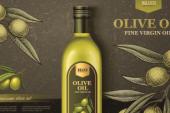Mediterranean Diet’s CV Benefits Extend to Women: Meta-analysis
“It's important to validate gender [doesn’t have] a major impact when it comes to diet,” Andrew Freeman says.

(UPDATED) Women who eat a Mediterranean diet—much like men—stand to gain reductions in cardiovascular disease, coronary heart disease, and death, a new meta-analysis confirms.
Led by Anushriya Pant (The University of Sydney, Australia), researchers say their study is the first to systematically stratify the effects of a Mediterranean diet—rich in unprocessed grains, fruits/vegetables, legumes, nuts, and olive oil, with some seafood but low in other animal products—by sex.
“Due to sex disparities in treatment and prognostic outcomes for CVD, there have been international calls for sex-specific cardiovascular research,” Pant and colleagues write in their paper published yesterday in Heart. And while there have been a few studies of the Mediterranean diet in women, “most historical cardiovascular diet trials have included predominantly male participants or did not report sex-specific analyses.”
Both US and European prevention guidelines, based on the results of the PREDIMED trial and other research, endorse the Mediterranean diet more generally but “lack sex-specific recommendations for diet,” they note, adding that research such as theirs can help address that information gap.
Senior author Sarah Zaman, MBBS, PhD (Westmead Hospital and The University of Sydney), said that their meta-analysis was meant to solidify the evidence base. “Now that we know so much more about women’s heart disease and how it can affect women differently than men, I just think every big recommendation we give patients should have had some sort of sex-specific analysis [behind it],” she told TCTMD.
Going into their study, “the evidence out there was conflicting. . . . If you looked at individual studies, some did not show a benefit, some showed a very small benefit like a 10, 11% risk reduction, and others a higher magnitude,” she explained, noting that, “To be honest, I thought we would show it was beneficial in women.”
Andrew Freeman, MD (National Jewish Health, Denver, CO), commenting on the results for TCTMD, agreed that there’s a need to dig into whether everyone benefits equally from the dietary approach.
We need to make massive lifestyle changes. Andrew Freeman
“We've known for a long time, despite all the noise that's out there, that there's enough signal that shows that a mostly plant-based, if not fully plant-based, diet improves not only outcomes for cardiovascular disease,” but also things like longevity and cancer risk, Freeman said. “It turns out lifestyle is incredibly important. So it's also important, I think, to periodically examine and see if there are subgroups that respond better or worse to particular dietary patterns. Because at the end of the day, there are people out there that eat a certain way and they still have issues, or they don't get as well, or they don't lose as much weight.”
The good news that women benefit just as much as men from the Mediterranean diet doesn’t come as much of a surprise, he said. Still, given the long history of imbalance in research, where “for years and years, especially in cardiology, women were considered ‘small men,’ . . . I think it's important to validate gender [doesn’t have] a major impact when it comes to diet.”
And amid rising rates of CVD, the meta-analysis “adds further fuel, if you will, to the fire that we need to make massive lifestyle changes,” said Freeman.
For their meta-analysis, Pant and colleagues included 722,495 women without prior CVD who took part in 16 prospective cohort studies of the Mediterranean diet. All of the studies either enrolled only female participants or analyzed outcomes by sex, and all quantified adherence to the Mediterranean diet through a 10-point score first developed in 1995.
Over a median follow-up of 12.5 years, greater adherence to the Mediterranean diet was linked to less incident CVD, total mortality, and coronary heart disease, with a trend toward less stroke.
Greater vs Lesser Adherence to Mediterranean Diet
|
|
HR |
95% CI |
|
CVD |
0.76 |
0.72-0.81 |
|
Total Mortality |
0.77 |
0.74-0.80 |
|
Coronary Heart Disease |
0.75 |
0.65-0.87 |
|
Stroke |
0.87 |
0.76-1.01 |
Data from the studies that reported subgroup analyses by sex showed hazard ratios for men (HR 0.78 for incident CVD and HR 0.77 for total mortality) that were nearly identical to those for women. The findings also extended to both European participants and those of non-European descent (Asian, Native Hawaiian, and African American).
The investigators say their results point to the need, going forward, for more sex-specific research. “It is possible that preventative measures, such as a Mediterranean diet, that targets inflammation and CVD risk factors, impose differing effects in women compared with men,” they suggest.
Not only do women with CVD sometimes present differently than men and can be affected by unique risk factors like pregnancy, but also “our body compositions are quite different, so you would think that possibly there would be dietary differences in the prevention of heart disease as well,” said Zaman. Additionally, considering menopause and other hormone changes that occur over a woman’s life span, the effects of diet might also change with time.
Their research team is now delving into how various dietary patterns, such as eating a high percentage of ultraprocessed food, differentially impact women versus men.
Even more broadly, Freeman said the meta-analysis is a reminder that lifestyle matters and that physicians need the training to feel comfortable addressing the topic of nutrition—in a 2017 paper, for which Freeman was senior author, 90% of nearly 1,000 cardiologists surveyed said they had received minimal or no nutrition training during their fellowship. “We need to further empower our clinicians for both female and male patients, and every patient for that matter, to employ lifestyle medicine, because it works,” he stressed.
Caitlin E. Cox is Executive Editor of TCTMD and Associate Director, Editorial Content at the Cardiovascular Research Foundation. She produces the…
Read Full BioSources
Pant A, Gribbin S, McIntyre D, et al. Primary prevention of cardiovascular disease in women with a Mediterranean diet: systematic review and meta-analysis. Heart. 2023;Epub ahead of print.
Disclosures
- Pant and Freeman report no relevant conflicts of interest.
- Zaman was supported by a Heart Foundation Future Leader Fellowship.





Comments